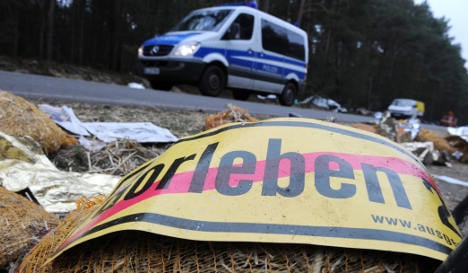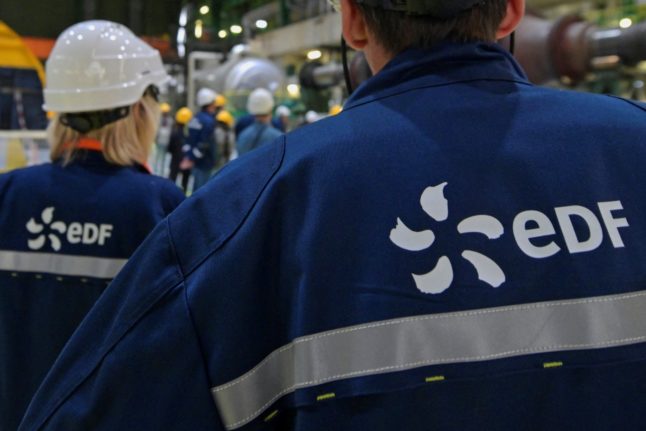Germans have long been opposed to nuclear energy, which is why the country perhaps still doesn’t have a permanent storage site for radioactive waste.
The temporary site at Gorbelen in the northern state of Lower Saxony is considered unsafe by many, and there have been protests against depositing more nuclear waste there for years. After a centre-left coalition of Social Democrats and Greens decided ten years ago to phase out atomic power, the demonstrations against the so-called Castor transports from France died down.
But Chancellor Angela Merkel’s decision last month to extend the use of Germany’s nuclear reactors for another 14 years stoked new life into the German anti-nuclear movement.
An estimated 20,000 to 50,000 people travelled to Lower Saxony at the weekend to hinder the 11 Castor containers holding 123 tonnes of radioactive waste as a special train laboured towards Gorleben for three days. The demonstrations turned nasty as protestors clashed with some 20,000 police officers trying to clear the way.
The anti-atomic movement hailed the determined opposition as proof that Germans were angered over the government’s nuclear policies. But the cat-and-mouse shenanigans also cost taxpayers around €50 million – and the country still doesn’t have permanent facility for radioactive waste.
Newspapers in The Local’s media roundup on Tuesday agreed the government’s nuclear policies had split German society, but were themselves divided over the impact of the latest demonstrations.
The centre-left daily Süddeutsche Zeitung said the clashes between protestors and police threatened to overshadow Germany’s flawed nuclear policies.
“Opposition to Gorleben has turned into a mass movement of housewives, teachers and farmers,” wrote the Munich-based paper. “But when violence obscures the protest it’s a fiasco, because it’s allows atomic policy makers to distract from their failures. Nuclear waste has to be disposed of safely – but there’s still no concept of just how to do that.”
The daily also pointed out the near impossible mission of the police: to ensure the security of a dangerous transport while not infringing on the right of citizens to engage in peaceful protests against atomic energy.
“But not even five times as many police officers could convince demonstrators the government’s nuclear policies are correct.”
The right-wing daily Die Welt said the violence at the weekend had discredited the anti-nuclear movement and embarrassed the leadership of the environmentalist Green party.
“On Saturday it looked like it would turn out be a family-friendly festival with a political message,” opined the paper. “But on Sunday there were serious, violent clashes between demonstrators and the police. People were hurt.”
The paper then accused top politicians from the Green party, which is currently riding high in opinion polls, of cynically trying to manipulate the anti-nuclear protests to their benefit.
“There was no mention that alternative energy won’t be far enough along in 2020 to supply our nation with enough energy and that’s why even coal power plants are necessary for basic electricity production,” wrote the daily. “More and more have been built since the decision to phase out atomic energy even though these power plants have a disastrous impact on the climate.”
The regional daily Badische Zeitung accused the Greens and the Social Democrats, which approved the atomic energy phase-out in 2000, of hypocrisy in the nuclear debate.
“While they governed they stopped the process of seeing if Gorleben was a potential permanent storage site,” wrote the Freiburg-based paper. “Leading Greens at the time let the reason slip: The lack of a permanent site would increase the political pressure to phase out” nuclear power.
The paper said Merkel’s centre-right coalition, however, was not handling the issue any better. “That the government is now forcing the exploration of Gorleben without looking for any alternative locations shows a chilling sort of narrow-mindedness.”
But the left-wing Frankfurter Rundschau said it was now futile to try and turn Gorleben into a permanent storage facility in the face of the virulent opposition.
“The opposition to Gorleben has existed for over 30 years and it will still exist 30 years from now,” wrote the paper, adding that the Greens and Merkel’s conservatives must stop trading the blame for who caused the protests.
“The only thing that can help now is starting the search for a permanent site from scratch with the most possible transparency and citizen participation.”



 Please whitelist us to continue reading.
Please whitelist us to continue reading.
Member comments